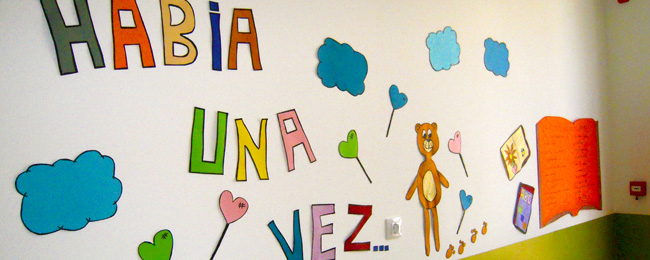Las emociones nos mueven para facilitarnos la vida. El miedo nos hace alejar de lo que tememos o nos ayuda a prepararnos y a estar alerta frente a una situación peligrosa. El enfado es la emoción que tenemos cuando nos sentimos frustrados y nos lleva a agredir para defendernos. En la etapa de desarrollo infantil la socialización no es otra que el contacto, ya sea de manera afectiva y positiva como negativa y desafiante, la posibilidad de comunicación verbal no está aún consolidad. A lo largo de los años desarrollarán otras respuestas alternativas: decir no, marcha, quejarse… Para aprender no obstante, necesitamos tiempo, un entorno que nos enseñe y una maduración de nuestro sistema nervioso.
Las educadoras saben muy bien qué hacer y se verán en la difícil situación de explicar a aquel padre o madre que su hijo / hija ha sido mordido o bien que hace unos días que muerde. …que mal trago… Algunas les dirán «No» con tono afectivo pero decidido; otras le explicarán que eso duele o le apartarán sin mirarlo y evitando así que el intento de llamar la atención tenga éxito. Les enseñarán a reclamarla de otra manera. Pero sólo el niño / niña que muerde entenderá el dolor que produce cuando él / ella sea mordido ¿cómo sino entiende lo que es el dolor? Aún les queda mucho por aprender.
Un mordisco en la mejilla o en el brazo de un hijo genera emociones de todo tipo: pena, rabia, miedo… Es normal y las educadoras lo saben y, con paciencia, siguen su trabajo día tras día. No obstante, al otro lado de la puerta, el padre o la madre seguirán reclamando más vigilancia, que aparten a los «conflictivos» o que aíslen a las víctimas para evitar nuevos conflictos. Pese a los mil ojos que desde la escuela vigilan a los pequeños, sucede, y tiene que suceder; os pedimos comprensión ante estos casos, muchas veces inevitable.
Socializarse significa estar en contacto con virus, tener un buen sistema inmunitario, saber esperar, tolerar, compartir, afrontar frustraciones, esperar tu turno, dormir con otros ruidos, recibir un mordisco, o darlo… y desarrollar los mecanismos necesarios para sobrevivir en su pequeño mundo donde los descubridores-agresores tienen nombre de personitas.
Emotions affect us to make our lives easier. Fear makes us move away from what we fear or helps us prepare and be alert to dangerous situations. Anger is the emotion we have when we feel frustrated and leads us to attack to defend ourselves. At the stage of child development socialization is no more than contact, whether it´s effective and positive or whether it´s negative and challenging; the possibility of verbal communication is not yet consolidated. Over the years they will develop other alternative responses: saying no, walking away, complaining … Nevertheless, to learn, we need time, a teachable environment and a maturing of the nervous system.
Educators know very well what to do and find themselves in the difficult position of explaining to parents that their son or daughter has been bitten or has bitten someone else. Some educators will tell the children «No» in an emotional and determined tone; others will explain that it hurts or will remove them from the situation without looking at them, thus preventing the success of attention seeking behaviour. They will teach them to complain in other ways. However, the boy or girl who bites will only understand the pain they produce when he or she is bitten. How else will they understand pain? They still have much to learn.
A bite on the cheek or the arm of a child creates all kinds of emotions: pain, anger, fear … This is normal and educators know this, so they continue their work patiently day after day. However, on the other side of the door, the parents will continue to call for more supervision, for the removal of “conflictive” children o for the isolation of the victims in order to avoid new conflicts. Despite the thousands of eyes that watch over the little ones at school, it happens, and it has to happen; we ask for your understanding in these cases which are often inevitable.
Socializing means being in contact with viruses, having a good immune system, being able to wait, tolerate, share, handle frustration, wait your turn, sleep with other noises, receive a bite, or give it… and develop the necessary mechanisms in order to survive in their little world where attack-discoverers have names and are little people.
